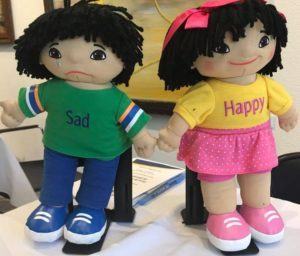By Hannah Esqueda
Image via Building Healthy Communities Merced
MERCED, Calif. — Nearly a hundred residents turned out for a recent mental health forum aimed at addressing issues within Merced County’s Spanish-speaking community.
The event was largely targeted towards ending the stigma of mental health within the area’s Latino families, and funded by The California Endowment (TCE), a statewide grant-making organization committed to improving health outcomes for underserved communities.
The local TCE initiative, Building Healthy Communities Merced, and PIQE (Parent Institute for Quality Education) led the forum, transforming the Multicultural Arts Center’s main floor into a free miniature mental health convention full of resources for local parents. A panel of mental health officials were also on hand to field community questions and Leticia Guillen, director of behavioral health at Livingston Community Health, gave the keynote address.
During her talk, Guillen urged residents to combat stigma against mental health disorders, even opening up and sharing her family’s personal medical trials with the audience.
She described how one of her siblings suffered from seizures as a result of epilepsy, and her mother’s struggle with depression and anxiety. Like many in the immigrant community, Guillen said the family often felt overwhelmed by negative thoughts but was unaware of mental health resources in the community.
“This stigma is due to ignorance,” she said. “In order to fight this we need to educate ourselves and recognize issues in the community.”
According to the 2016 Merced County Community Health Assessment, Hispanic and Latino residents reported higher rates of chronic depressive symptoms than White counterparts, despite having lower diagnosis rates. The community’s youth are also vulnerable, with more than 34 percent of Latino teens in Merced County reporting depression-related feelings almost every day for two weeks or more, according to KidsData.
Too often, Guillen said, Latino and immigrant families get used to operating under stressful conditions and fail to recognize the signs of more serious mental health disorders like depression, anxiety or even Post Traumatic Stress Disorder (PTSD).
Guillen’s position at Livingston Community Health has helped her start to raise awareness among immigrant and Latino families, but she said it’s crucial for parents to recognize when their kids need help.
“If they’re sleeping all the time and tired, if they’re not hungry anymore or don’t want to go to school–these are all signs that something more serious may be going on,” she said.

Equally important is the need to end the stigma within Latino communities regarding mental health disorders, Guillen said.
Parents are the first-line of defense for youth experiencing depression and can often lead by example, said Tatiana Vizcaino-Stewart, with Health Equity Project.
Vizcaino-Stewart opened up about her own struggle with chronic depression during the community panel discussion, saying she struggled with the issue throughout much of her life.
“I wouldn’t even want to leave the house,” she said. “But it’s been important in my experience to find those things that will help me take care of myself and be healthy.”
Surrounding herself with people who can be strong and supportive was also crucial to her experience and Vizcaino-Stewart urged the parents in attendance to discover what works for them so they can share healthy habits with their kids.
Leading by example is crucial, as once parents are taking care of themselves they can recognize ways of helping their children, Guillen added.
“It’s important to take care of our minds and our bodies for our kids. So stay active, even if it’s just walking a few minutes a day, just pick a direction and take a walk,” she said. “Expressing emotion is also important. Laughing, smiling, singing are all important ways we can take the focus off the negative and celebrate the positive in our lives.”
 Translate
Translate
